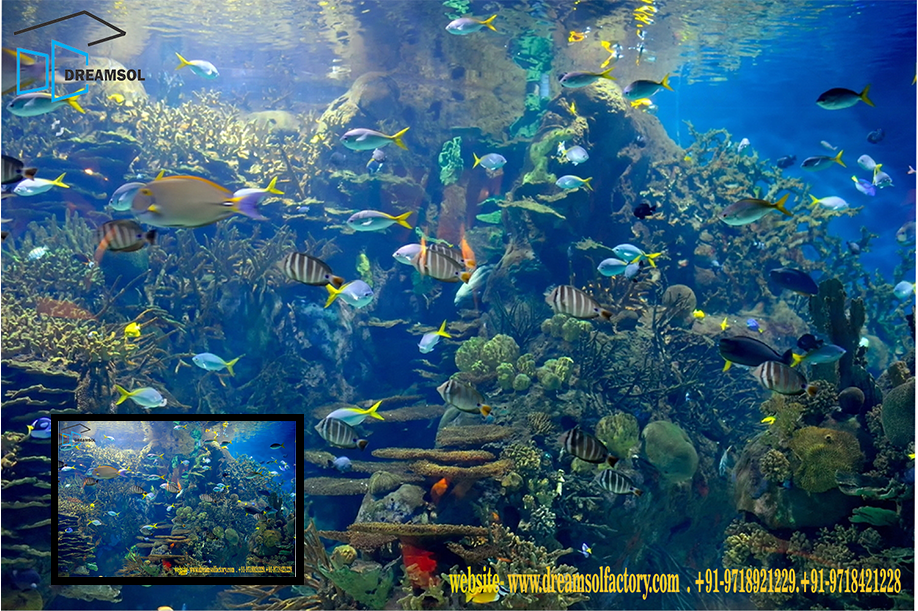-
-
Aqua Arts
-
Fish Pond

What Is A Fish Pond ?
A Fish Pond is a man-made or natural body of water specifically designed to house and sustain fish.
It is a controlled environment that provides a suitable habitat for various species of fish, offering both aesthetic appeal and recreational opportunities.
Features Of Fish Pond
1. Aquatic Life and Biodiversity:
A Fish Pond creates a habitat for fish to thrive and reproduce.
It supports a diverse ecosystem that includes not only fish but also other aquatic organisms such as plants, invertebrates, and amphibians.
This biodiversity contributes to a balanced and healthy environment.
2. Aesthetics and Landscaping:
A well-designed Fish Pond enhances the visual appeal of an outdoor space.
It can be incorporated into garden landscapes, parks, or residential properties, adding a tranquil and natural element.
The sight and sound of water, along with the presence of fish, create a peaceful and soothing atmosphere.
3. Recreational and Educational Opportunities:
Fish Pond offers recreational activities such as fishing, which can be enjoyed by both enthusiasts and beginners.
Fishing in a pond provides a controlled and accessible environment for angling.
Additionally, fish ponds can serve as educational tools, allowing individuals to learn about aquatic ecosystems, fish species, and environmental conservation.
4. Water Management and Conservation:
Fish Pond can contribute to water management and conservation efforts.
They act as a reservoir for water, helping to retain and store rainfall, which can be used for irrigation purposes.
Fish Ponds can also help improve water quality by filtering and purifying the water through the interaction of fish, plants, and beneficial bacteria.
5. Environmental Balance:
Fish Pond can promote environmental balance by providing a controlled environment for fish populations.
By carefully managing the number and types of fish, the pond ecosystem can be kept in balance,
preventing overpopulation and ensuring the overall health of the fish and other aquatic organisms.
6. Natural Pest Control:
Some fish species in Fish Pond can serve as natural pest controllers.
For example, certain types of fish feed on mosquito larvae, helping to reduce mosquito populations and the risk of mosquito-borne diseases.
7. Educational and Therapeutic Benefits:
Fish Pond can provide educational opportunities, particularly for children, to learn about aquatic life, ecosystems, and environmental stewardship.
Additionally, watching fish swim in a pond can have a calming and therapeutic effect, offering stress relief and promoting relaxation.
8. Aesthetic Appeal:
A well-designed Fish Pond enhances the visual appeal of outdoor spaces, such as gardens or landscapes.
The presence of water, aquatic plants, and fish creates a serene and natural atmosphere, adding beauty and tranquility to the surroundings.
9. Recreational Enjoyment:
Fish Pond provide recreational opportunities, particularly for fishing enthusiasts.
Whether it's catching fish for sport or relaxation, fishing in a pond offers a convenient and controlled environment for angling.
It can be an enjoyable activity for individuals or a way to bond with family and friends.
10. Educational Value:
Fish Pond serve as educational tools, especially for children, offering insights into aquatic ecosystems and the life cycles of fish.
Observing and learning about different fish species, their habitats, and behaviors can foster a greater understanding and appreciation for the natural world.
When establishing and maintaining a fish pond, it's important to consider factors such as proper filtration, regular maintenance, appropriate fish species selection, and adherence to local regulations.
Consulting with experts in pond management or fisheries can help ensure the success and sustainability of the fish pond.